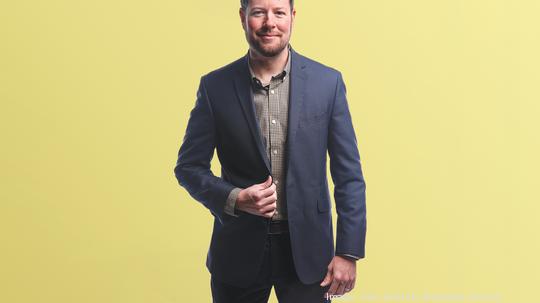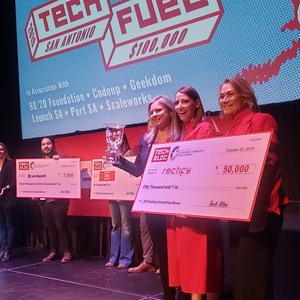
Sean Attwood is new to his role as business development manager for VIP Tech Consultants, the tech arm of VIP Staffing, but he's a long-established voice in San Antonio's tech scene.
Attwood stepped into his new position at VIP Tech Consultants just a few weeks ago, having served from 2018-22 as vice president of business development for greater:SATX. Prior to that he was program director for the "Techworks" Skills Training Program at the Alamo Colleges District, and also served as an Alamo Colleges District program manager for workforce and economic development.
He also spent more than 11 years at Rackspace Technology working in customer communications, corporate strategy, data center operations, project management and account management. Recently, he sat down with the Business Journal to talk about the state of the Alamo City's tech industry and what the city — and employers — can do to build, attract and retain tech talent.
What has the city done to change the face of the tech industry in San Antonio?
What sets San Antonio apart are some of the moves that we’ve made as a city to make it accessible for folks to get this kind of training. A few years ago, stakeholders from business, government, academia and nonprofits got together to make community college free for every Bexar County resident. It's called the Alamo Promise program, and I was lucky to be a very small grain of sand in that, building more programs of a vocational nature that you can get college credit for if you want it, but gives you multiple on-ramps and off-ramps for getting those skills.
And citizens recently approved the one-eighth-of-a-cent tax measure to support the Ready for Work Program, which really brought together leading figures from the business community, academia and government to determine what are the jobs that are the most in demand across all industries, and which programs are available but not ordinary accessible to folks below the poverty line. Some of these IT programs cost thousands! I see a lot of action happening in the city that's helping solve our retention problem — and our educational attainment problem, which really work hand in hand.
Is the Alamo City appealing to tech talent in ways it wasn't before?
It wasn't easy to bring talent to San Antonio 15 or so years ago, especially folks in a dynamic field like tech, who want more innovation, more nightlife, more work life, more integrated lifestyles. We provide much of that now and there's a lot of it on the horizon, so getting them to relocate isn't as hard as it used to be. And there's the appeal of the economics of the type of life you can build in this city (with low cost of living). We are importing talent because we've put in the work and the dividends are starting to pay, but we need to provide an environment where we're not importing talent. We're creating talent, and it's starting as early as high school — and we're seeing so many more folks that are qualified and competing against each other for these jobs locally now. It's equally important that we (both) create an attractive city that people want to live in, and continue to invest in education.
Are San Antonio tech companies finding it hard to retain workers — and what can they do to solve that problem?
I don't like using the term 'Great Resignation,' but it is a good anchor for us to have a serious conversation about what's happening in the workplace right now. The number one thing is flexibility. Let's talk about neurodiversity. There is no such thing as the 'perfect candidate.' There are some people who absolutely thrive in an environment where at least four days a week or so they can concentrate, lock in and get their work done outside of an office.
And like all the other 'wars' out there, I think there's an unspoken neurodiversity war and I think it's highly inappropriate for anyone who wants to build a successful organization to ignore that as part of their overall cultural competence. We talk about other aspects of diversity, equity and inclusion, but we don't discuss neurodiversity enough and how it relates to the biggest issue: Working from home versus not working from home. People on both sides are pulling like a game of tug-of-war. We don't need to go to war with our elders or others who prefer to be (in an office building). We need companies that are able to have a dialogue about this issue, even if they haven't taken a 'side' on it. I don't think there is a side. The companies willing (to talk about it) are already winning. And with individuals all the way through organizations, the more that you can hold two or more opposing ideas at one time and carry on a discussion with people that come from all different perspectives, the more you're going to win.
Has the role of technical recruiters — and of HR departments — changed during the pandemic?
We see a lot more decentralized hiring decisions than we used to see. Departments now often have hiring budgets and control over how that hiring budget is used and how that process is run. While you still need HR specialists, it's great because it also incentivizes folks to be more involved in the hiring process to work shoulder-to-shoulder. Just ten years ago it was a lot more rare for somebody who was in the same role or on the same team to be part of the hiring process of hiring a teammate — whereas now it's almost obvious that that should be a part of the process.



